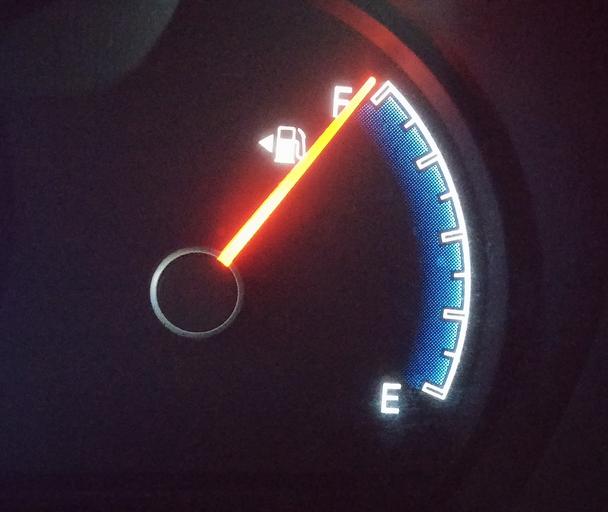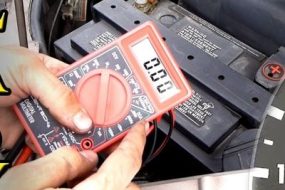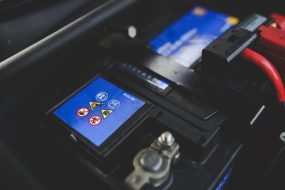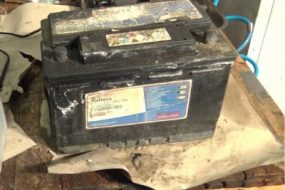
The automotive world is filled with various myths and misconceptions, and one topic that often circulates among vehicle owners is whether disconnecting the car battery can reset the fuel gauge.
The fuel gauge is a crucial component that provides drivers with information about their fuel levels, helping them avoid running out of gas unexpectedly. But when the fuel guage starts to have issues, will disconnecting the battery reset it?
No, disconnecting the battery cannot reset the fuel guage because the fuel gauge operates independently within the vehicle’s electrical system and relies on the accurate readings from the fuel level sensor to function. Therefore, when a reset needs to be done to the gauge, disconnecting the battery cannot perfect the reset.
Will Disconnecting Battery Reset Fuel Gauge?
“Disconnecting the battery cannot reset the fuel guage in your car because the fuel gauge is part of a separate circuit within the vehicle’s electrical system, and its calibration is not typically affected by a battery disconnect.”
In most cases, the fuel gauge relies on the fuel level sensor’s readings to provide accurate information to the driver.
When the car battery is disconnected, it may lead to the reset of certain electronic systems and error codes. The vehicle’s electrical systems lose power, and any stored electronic settings or error codes may be reset, but it’s not designed as a standard method for calibrating or resetting the fuel gauge.
However, if you’re experiencing issues with your fuel gauge, it’s recommended to consult your vehicle’s owner’s manual for specific instructions on how to reset or calibrate the fuel gauge. You can also take your car to a qualified mechanic and have it check your fuel systems as well as the instrument cluster for you.
Most times when the fuel guage starts to read wrong, there are two most popular cause. The first is a fuel system that is not properly positioned or installed into the fuel tank. This can cause the fuel guage to start reading wrong. The next reason could be a bad instrument cluster. I’ve heard these two problems since my years of driving cars.
So, I recommend taking your car to a mechanic or dealership and having them find out what is wrong with your fuel gauge as well as the necessary reset it needs to start functioning again.
What Would Cause the Fuel Gauge to Stop Working
Several factors could contribute to a fuel gauge not working properly. Here are some common reasons why a fuel gauge might stop working:
- Faulty Fuel Level Sensor: The fuel gauge relies on a fuel level sensor, often located inside the fuel tank. If this sensor is malfunctioning or fails, it can lead to inaccurate readings or cause the fuel gauge to stop working altogether.
- Wiring Issues: The wiring that connects the fuel level sensor to the instrument cluster and other relevant components may become damaged or corroded thereby disrupting the communication between the sensor and the gauge.
- Faulty Instrument Cluster: The instrument cluster itself, which houses the fuel gauge, could be faulty. This might be due to internal issues or circuitry problems within the cluster.
- Blown Fuse: A blown fuse in the vehicle’s fuse box could be responsible for the fuel gauge malfunction. Check the fuse related to the instrument cluster or fuel gauge and replace it if necessary.
- Issues with the Ground Connection: A poor or corroded ground connection can disrupt the proper functioning of the fuel gauge. Ensure that the ground connection is secure and free of corrosion.
- Faulty Stepper Motor: In some vehicles, the fuel gauge needle is controlled by a stepper motor. If this motor fails, it can result in erratic or non-functional gauge readings.
- Software or Calibration Issues: Sometimes, the problem may be related to software or calibration issues. In modern vehicles, the fuel gauge is often integrated into the vehicle’s electronic control unit (ECU), and software glitches could affect its performance.
- Empty or Stuck Fuel Float: Some vehicles use a float attached to the fuel pump to measure fuel levels. If this float is stuck or damaged, it can lead to inaccurate readings or a non-functional fuel gauge.
- Mechanical Damage: Physical damage to the fuel tank or associated components, such as the fuel level sensor, wiring, or instrument cluster, can cause the fuel gauge to malfunction.
- Disconnected or Damaged Wiring During Repairs: If recent repairs or maintenance were performed on the vehicle, there’s a possibility that wiring related to the fuel gauge was disconnected, damaged, or not properly reconnected.
Conclusion
Disconnecting the car battery may reset certain electronic systems, but it is not a guaranteed method for resetting the fuel gauge. The fuel gauge operates independently within the vehicle’s electrical system and relies on the accurate readings from the fuel level sensor.
If a driver encounters issues with the fuel gauge, following the manufacturer’s recommended calibration procedures or seeking professional assistance is the best approach to ensure accurate readings and reliable performance.
Remember that accurate fuel level information is crucial for maintaining a smoothly running vehicle and preventing unexpected breakdowns due to running out of gas.




